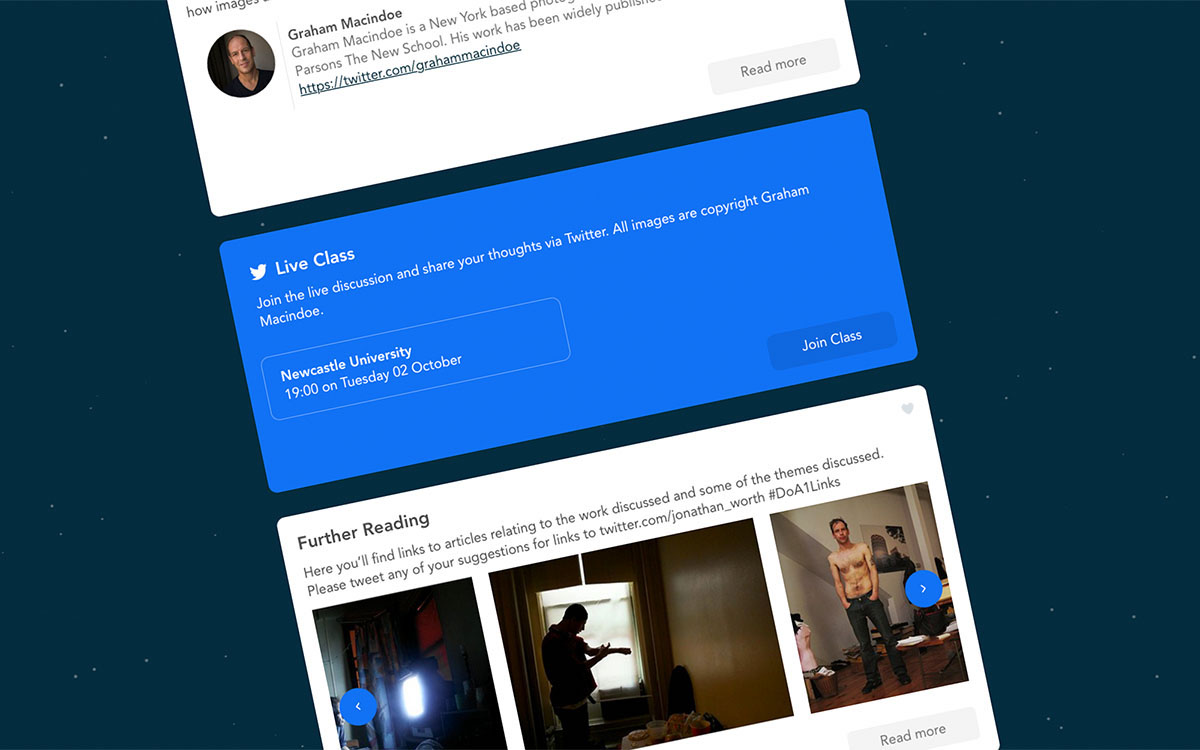Introduction
Connected Academy aimed to combine connected learning with peer feedback in an online space. It offered a new form of conversation-driven education driven by real-time engagement across social media.

About Connected Academy
Social Learning
-
Students publish notes to Twitter referencing segments of audio, thus sparking rich conversation and connected learning at a global scale.
-
Their notes contain a link when published to Twitter, this deep-links their followers back to the exact point in the lesson content.
Media Focus
-
Classes are strongly supported by visual media such as images and photographs. The platform enables media to be associated with specific points, thus enabling conversations to form around them.
-
Images are displayed front and center of the interface in a carousel format. As the session progresses the carousel animates to keep the current image in frame. Images can be expanded to view full detail.
Peer Feedback
-
Dynamically created chat groups allow for private peer feedback. Our algorithms group students based on a set of criteria to encourage self-assessment and critique.
-
Students unlock feedback on their own work by providing feedback to others in their group. This method encourages participation and improves the quality and quantity of feedback between peers.
Projects
Connected Academy is designed to run online courses to a blended audience (both in-person and online). Towards the end of the project we ran a short course as a proof of concept.
Depictions of Addiction
An online course explore the representations of addiction in journalistic photography. In partnership with several renowned photographers this course took learners on a three part journey narrated by Graham Macindoe, Jeffrey Stockbridge and Nina Berman.
Part 1 - Coming Clean
Photographer Graham Macindoe and journalist Susan Stellin provide a case-study for us to consider how images are interpreted and to reflect on their enduring and potentially evolving impact.
Part 2 - Kensington Blues
New participants revisit some of the themes of episode one and their alternate perspectives enable us to build on those discussions. We move from the self-portraiture of Graham Macindoe, to the participatory practices of Jeffrey Stockbridge and his Kensington Blues project.
Part 3 - Miss Wish
New York based photographer Nina Berman interviews her long term subject Kimberly Stevens. Industry stalwart and critical thinker Stephen Mayes reflects on the audience perspective and Professor Mark Kleiman of New York University again challenges our thinking on addiction and forces us to revisit our earlier discussions.
Walk-through
